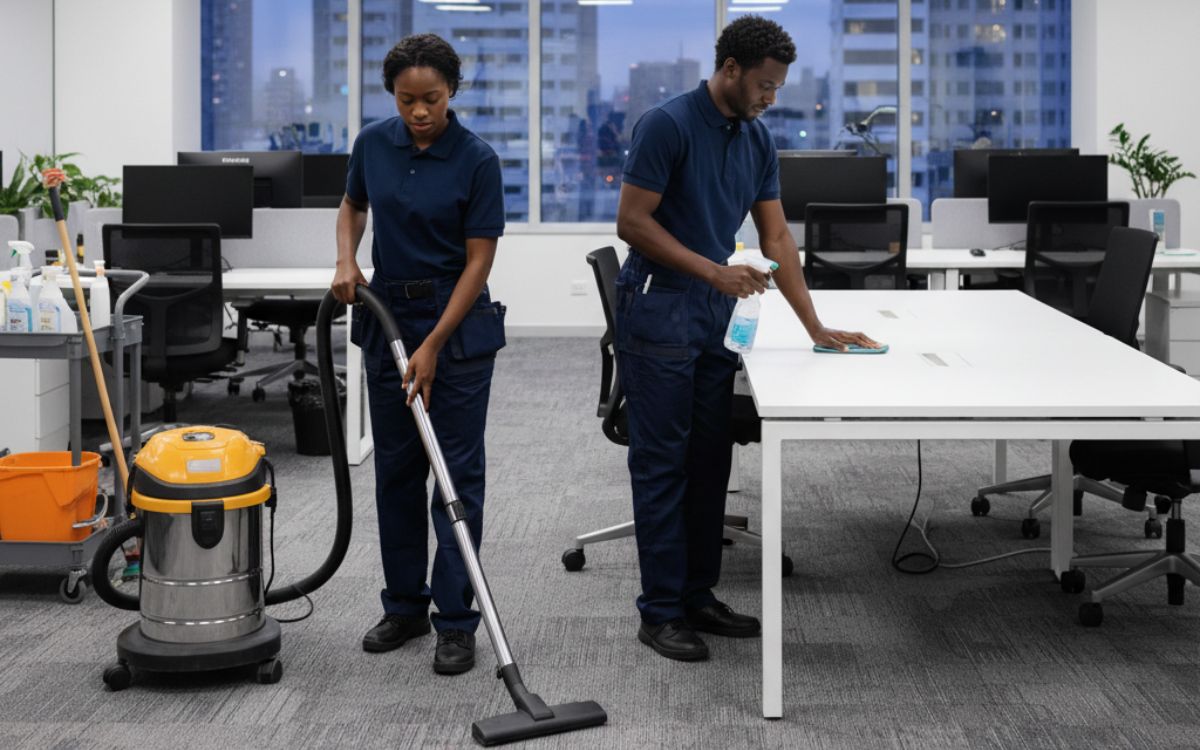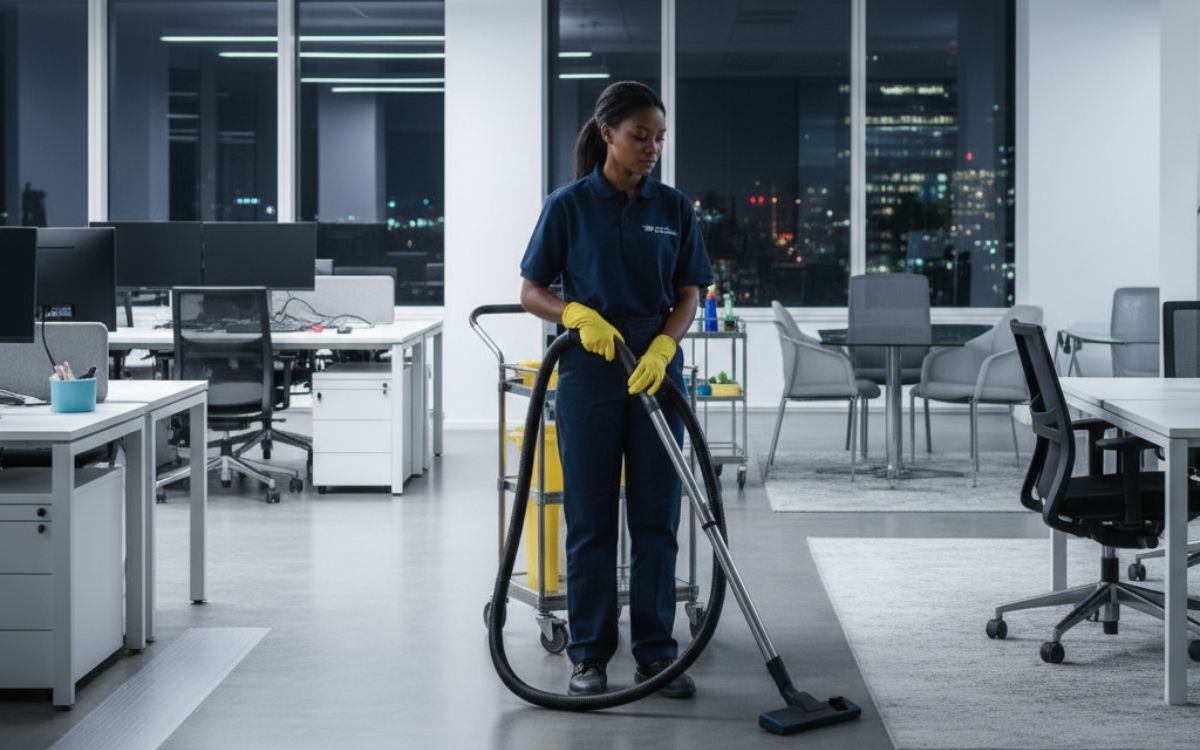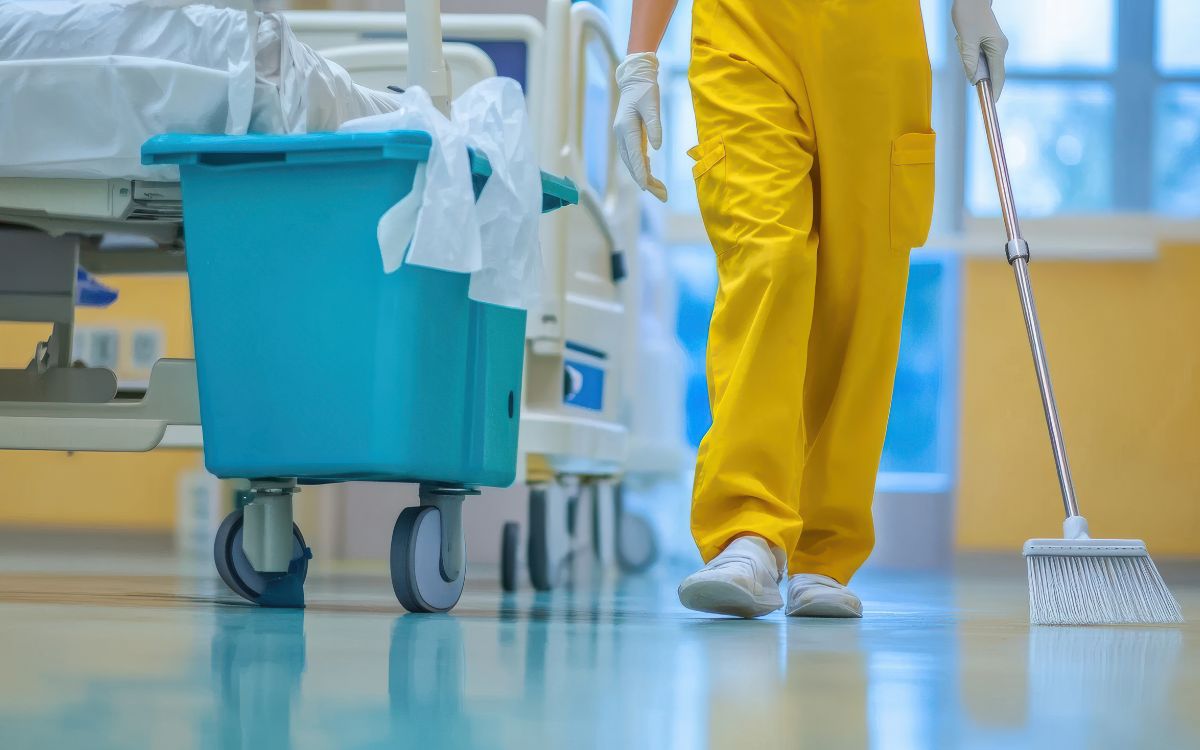A professionally trained cleaning team is an asset to any company. If your team is not yet professionally accredited, you are missing out on a crucial layer of support for your business. Accredited training courses for cleaning staff ensure your team operates at the highest level of efficiency, safety, and compliance.
Below we discuss the benefits of a well-trained cleaning crew, explore various training options and courses, and provide guidance on selecting the right programme to raise your cleaning standards.
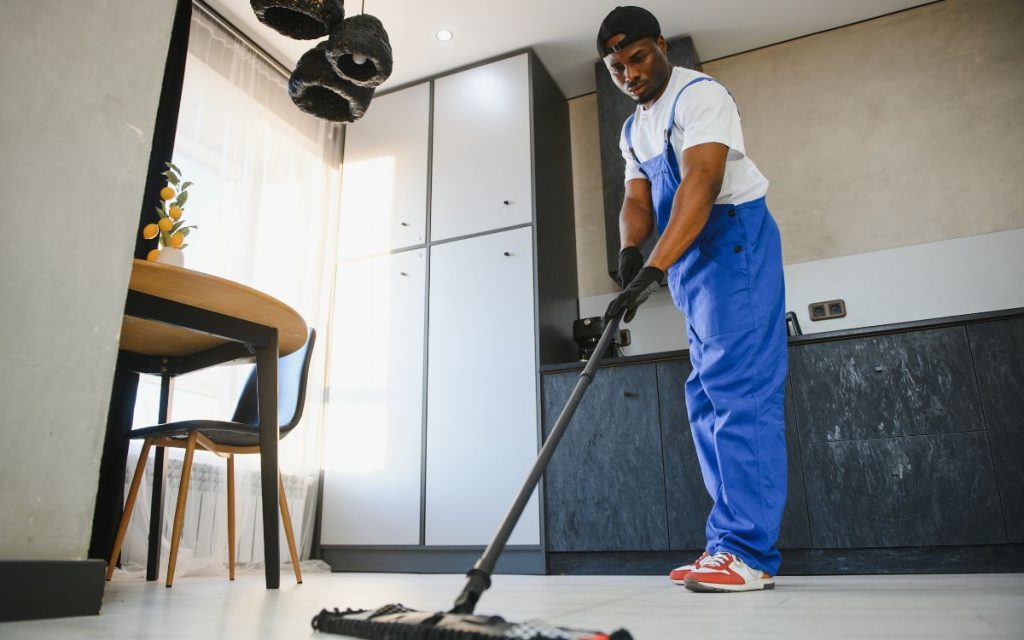
The Power of a Trained Cleaning Team
A well-trained cleaning team is invaluable. They are the backbone of a clean and healthy workplace. Why? Because investing in professional training equips your staff with the expertise to tackle any cleaning challenge efficiently.
Training programmes cover essential skills, from proper sanitation practices to the safe handling of cleaning equipment. This knowledge allows your team to uphold the highest standards of hygiene.
This focus on skills development helps your team become more proficient, reducing the time needed to complete tasks and minimising mistakes. Ultimately, a trained team ensures a consistently high standard, contributing to a safer and more productive work environment for everyone.
Available Training Courses for Cleaning Staff
There are a number of training options available for your cleaning staff’s skills development. These programmes meet various needs, from basic cleaning procedures training to more advanced cleaning staff training. By selecting the right options, your team will have the best professional cleaning certification to excel in your workplace.
General Cleaning Skills and Hygiene
These courses form the foundation of professional cleaning, with a focus on essential skills. Courses cover proper handwashing to prevent the spread of germs. Staff also learn crucial cleaning methods and techniques, such as proper dusting, mopping, and waste disposal.
Importantly, staff learn to correctly handle equipment, for the safe and effective use of professional cleaning tools. Examples of professional-grade equipment include:
High-Pressure Washers: For powerful and efficient cleaning of tough surfaces.
Industrial Floor Scrubbers and Polishers: To maintain and restore the shine of different floor types.
Telescopic Water-fed Poles: For streak-free and safe cleaning of high-reach windows, facades and solar panels.
Professional-Grade Vacuum Cleaners and Carpet Cleaners: To ensure thorough dust removal and deep cleaning of carpets.
General options also include health and safety training, covering workplace safety, hazard identification, and emergency procedures. Below are 5 general training options:
- Office Cleaning: Refine cleaning skills with essential techniques for a spotless and efficient workspace.
- Carpet Cleaning: Gain expertise in carpet care, including stain removal and maintenance for a lasting clean.
- Window Cleaning: Learn the professional tricks for sparkling, streak-free windows that enhance any space.
- Hygiene: Master vital hygiene practices to keep environments clean and germ-free.
- Green Cleaning: Embrace sustainable cleaning methods that protect the environment and maintain cleanliness.
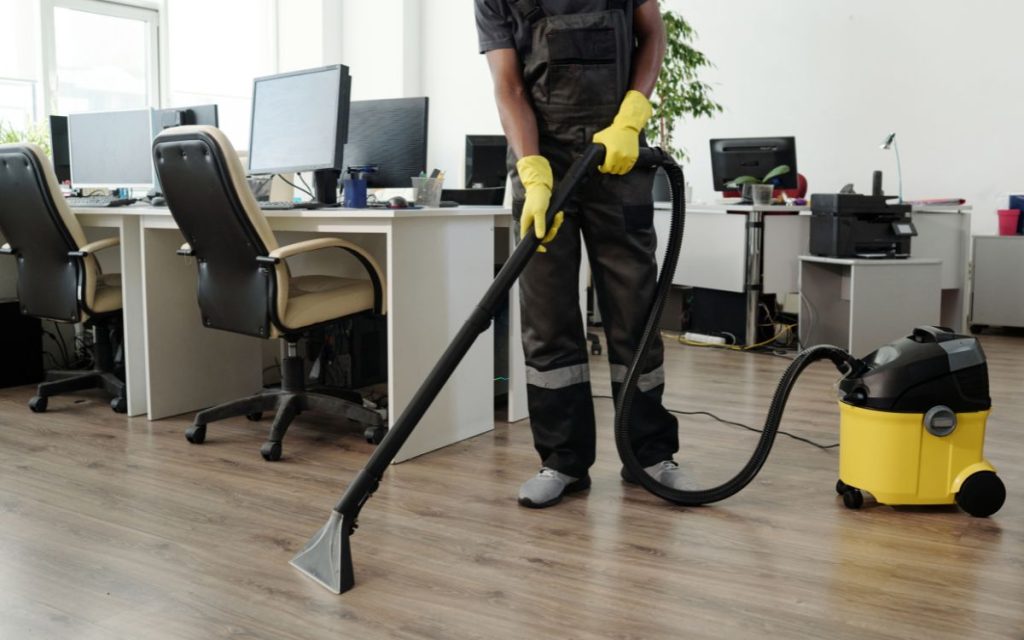
Specialised Training
For businesses with specific needs, specialised programmes offer more advanced skills. For example, commercial cleaning courses are tailored for professionals who work in office and retail spaces. While healthcare cleaning and infection control training for cleaners is essential for maintaining sterile environments in medical facilities.
Janitorial training courses focus on maintaining public spaces and high-traffic areas. Whereas microbial cleaning teaches staff how to eliminate harmful microorganisms. Below are 6 specialised training courses:
- Hygiene & Cleaning Services (NQF Level 1)
- Specialised Hygiene & Cleaning Services (NQF Level 2)
- Generic Management (NQF Level 4)
- New Venture Creation (NQF Level 4)
- Occupational Qualification Commercial Cleaner (Level 1)
- Occupational Qualification Cleaning Practitioner (Level 3)
Training Formats
Training can be delivered either online or in-person to suit your business. Online cleaning courses offer flexibility, allowing staff to learn at their own pace without disrupting daily work.
Whereas in-person training provides hands-on experience, useful for learning how to handle equipment. An off-site training programme allows your staff to be trained in a facility where they can get hands-on experience with specialised equipment.
Why Choose an Accredited Course
Choosing an accredited course offers significant benefits for both staff and your business. For staff, completing a course with NQF levels, such as Hygiene & Cleaning Services NQF Level 1 or Generic Management NQF Level 4, gives them a clear way to grow in their careers. These qualifications are proof of their professional skills and knowledge, which help them advance in their jobs.
Beyond core cleaning skills, accredited training programmes include valuable business management courses. These courses build well-rounded professionals who can contribute more to your company’s success. Additionally, personal development courses help create a more stable and peaceful team.
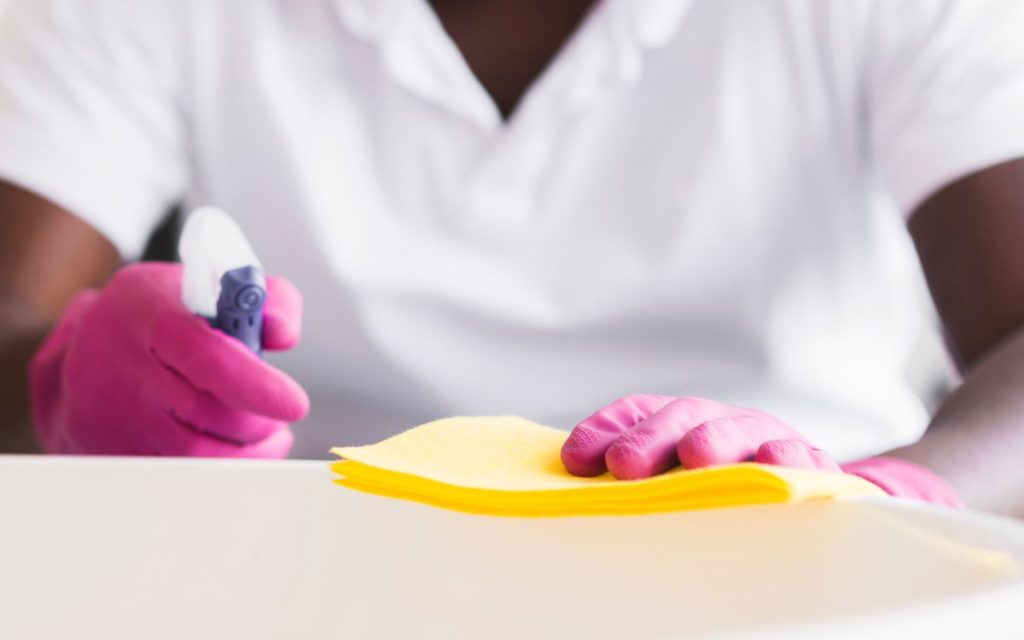
Factors to Consider When Choosing a Training Course
Selecting the right cleaning training course for your staff requires careful thought to get the most value for your money. Consider these 4 factors when choosing a course.
- Specialisation: You need to decide if you need general or specialised training for your staff. A regular corporate office might only need basic cleaning skills, a food laboratory would need more specific training on controlling germs and keeping surfaces hygienic.
- Format: Think about whether in-person or online courses are better for your staff. Online courses are flexible and good for those who want to learn at their own pace. In-person training gives staff practical experience, such as how to use certain equipment.
- Provider Reputation: It’s important to check the provider’s reputation. Look for proof of quality, like an ISO 9001-2015 certification. Also, check for partnerships with official groups like the NCCA, SERVICES SETA, and QCTO. These show that the training is credible and meets high industry standards.
- Certification: Look at what kind of certificate you get. A formal, accredited certificate is more valuable than just a certificate of attendance.
Invest in Your Cleaning Team’s Future
By providing your staff with accredited training, you are building a more professional, capable, and productive workforce. In turn, a well-trained team raises your workplace cleaning standards and improves compliance with health and safety regulations. Take a moment to assess your current cleaning protocols and consider how accredited training can elevate your business. Contact us for expert advice on staff training courses and see how we can help your business.


